|
Population Services International (PSI) is the world’s largest social marketing organization. It improves health outcomes in developing countries by mobilizing the private sector to make markets work for the poor and vulnerable. PSI has worked in Myanmar since 1995 and is one of the largest providers of health products and services in the country. It has four channels of delivery and works in six health areas.
An essential component of PSI/Myanmar’s social marketing strategy is its social franchising network of private healthcare providers. Social franchising aims to deliver equitable, at-scale and quality healthcare to low-income and vulnerable populations through cost effective delivery mechanisms. PSI/Myanmar’s Sun Quality network is comprised of Sun Quality Health (SQH), which serves urban and peri-urban areas, and Sun Primary Health (SPH), which serves rural regions. For providers, this model of healthcare offers trainings, subsidized products, quality assurance, common branding, and demand generation activities. For the Myanmar people, it expands their choice of qualified providers who can address their most pressing health needs and are accessible in their communities. To read more click here.
1 Comment
By Ester G. Dipasupil for the Philippine Daily Inquirer
Olive, Marilou and Melanie have something to sell as franchise holders—and it’s not hotdogs, mineral water or beauty salon services. The three are licensed midwives, part of a growing network of franchisees under the social franchising for health program for emerging small entrepreneurs. Unlike the traditional franchising system that hands down successful business practices to one willing to adopt a brand’s concept and systems, social franchising exists not just for the profit motive but also a social purpose. On Oct. 23, the second Global Conference on Social Franchising for Health opened in Cebu City, with the aim of sharing knowledge and best practices with partner implementers, donors, experts and policy makers. Among other topics, the conference will zero in on the role of social franchising in the delivery of affordable and quality maternal healthcare, as seen from the experience of people like Olive, Marilou and Melanie. The conference, which ends today, has drawn representatives from 40 countries (the first meeting took place in Kenya in 2011). It was organized by the Private Sector Healthcare Initiative of the University of California San Francisco Global Health Group. Population Services Pilipinas Inc. (PSPI), one of the participants, for example, will talk on the impact of its BlueStar Pilipinas clinics, a family planning franchise run by midwives, on improving equitable access to high quality maternal and family planning services through their franchisees, especially in underserved populations. “We also want to share the experience of BlueS tar Pilipinas with the global social franchising community regarding the sustainability of our services through the accreditation of midwife-franchisees as providers of Philhealth’s Maternity Care Package,” said PSPI Chief Executive Virgilio Pernito. The Philhealth coverage for mothers about to give birth is also a boon for the participating midwife in the BlueStar social franchise who gets almost double the usual delivery fee (from P3,500 to P4,000) paid to her by the patient. BlueStar opened its doors in 2008 to largely marginalized women in need of maternal care. There are 196 BS clinics in Luzon, 33 in the Visayas and 37 in Mindanao. The midwives’ stories from a series of unfortunate events to fairytale endings as successful franchisees are straight out of a sudsy soap series. Read more: http://business.inquirer.net/180797/midwives-deliver-as-entrepreneurs#ixzz3HGa2EeNT Follow us: @inquirerdotnet on Twitter | inquirerdotnet on Facebook By Marie Stopes International
Social franchising is one of the innovative ways in which we deliver services to the world’s most under-served people. To mark this week's Global Conference on Social Franchising for Health, we ask our Head of Social Franchising, Brendan Hayes, how social franchising works and why it has such potential to expand access to healthcare. What is social franchising? Social franchising is an approach to delivering healthcare that recognises that the private sector is a major contributor to health services in many countries around the world. This includes small, private providers who deliver healthcare to the poorest and most marginalised sections of society. However, the quality of private sector services is often low and fails to prioritise preventative healthcare such as family planning. Through social franchising we seek to partner with private facilities, which are often run by nurses and midwives, to improve their standards and expand access to high quality family planning services. What are the benefits of partnering with small, private providers? Small clinics provide healthcare to the most vulnerable, and because they are members of the community, they are accountable to the people they serve in a way that is often not seen in public facilities. Marie Stopes International plays an important role on behalf of governments in organising these providers, assuring quality in these networks, and, in some cases, creating the opportunity for public procurement of services from an otherwise fragmented health market. In what areas are we seeing particular success? We have some really exciting opportunities to connect our private providers to national health insurance schemes. In the Philippines, we are supporting our midwives on accreditation standards for maternal care, which will allow us to increase clients' access to both safe delivery and family planning services. What are the main challenges you face in implementing a social franchising program me? Our aim is to increase access to high quality family planning services, which can be life-changing for women and hugely beneficial to health systems overall. However, family planning isn’t always a convincing business proposition, so not all providers see the benefits of joining a social franchising programme. What key issues will be discussed at this week’s conference? Financial sustainability is a key issue at this year's Global Conference on Social Franchising for Health. How do you achieve financial sustainability while reaching the poorest women with essential services? Marie Stopes International is a leading organisation in this area, as shown by our work linking providers to health financing opportunities in the Philippines, in places like Ghana and Kenya, and in Nigeria under the African Health Markets for Equity Partnership. Find out more about social franchising By Marie Stopes International
Social franchising is one of the innovative ways in which we connect some of the world’s most under-served people with the family planning and reproductive health services they want and need. There are over 200 million women around the world who want to use family planning but cannot access it. A large proportion of people in developing countries use private healthcare providers for most of their health needs, especially people in remote locations or urban slums who may be far from state-run health facilities. Working with existing providers We’ve teamed up with existing private healthcare providers in order to scale up access to high quality care for some of the world’s poorest and most under-served people. Our social franchise network works in much the same way as a commercial franchising operation. Franchisees – clinics, midwives and pharmacies – pay a small fee to join the network. They receive extensive and ongoing training in a range of sexual and reproductive health services, infection prevention, counselling, and, importantly, how to put their clients’ needs at the heart of what they do. Once they have completed the initial training and meet our quality standards they are provided with branded signboards and materials, usually bearing the logo of our BlueStar network. We also provide them with affordable high quality medicines and other products from, which they sell to clients using an agreed pricing structure. Ensuring quality As part of the franchise agreement providers must commit to our franchising membership standards, including regular quality assurance monitoring and reporting. We closely monitor the quality of their services to make sure they meet our international standards. Many franchisees already offer a range of short term family planning solutions before joining the network. We work with them to make sure clients have a wider choice of family planning options, including long acting methods, post-abortion care, and safe abortion services where permitted. In Tanzania, orange has increasingly become the recognized color of family planning and reproductive health services. Population Services International’s orange Familia brand is quite common in most regions of this coastal country of 49 million. PSI, a global non-profit organization dedicated to improving the health of people in the developing world, has consistently and effectively branded everything in its nationwide Familia social franchise network since it began in 2009 with unforgettable orange and its semi-cursive Familia logo that bears a heart at the beginning of its name. All aspects of the Familia social franchise network from its clinics’ signage to the clothing of its health workers to its condom brand that claims in part 80% of Tanzania’s condom market and its health education booklets, all get PSI’s extensive branding treatment. The result: PSI Tanzania was able to serve 119,000 clients in 2013 through Familia via word of mouth and effective marketing.
Familia is PSI’s social franchise network of over 260 private sector clinics across 23 regions that primarily provides family planning, cervical cancer and maternal health services as well as health services for children under the age of five in urban and peri-urban community settings in Tanzania. Tanzania’s most remote areas are serviced by PSI outreach teams. Private sector clinics like Mission Mbagala Dispensary in Dar es Salaam, a Familia franchise owned by an area doctor, Dr. John, can accommodate 200 people a day in his small, yet efficient clinic that is often fraught with power outages and a lack of modern equipment. Dr. John says his clients want an ultrasound machine, for example, but a new one costs 23 million Tanzanian shillings or $13,600 USD. And yet through these challenges he says, “We always believe we should give quality care at the primary level.” A quick walk-through of Dr. John’s clinic shows sure signs of Familia branding from aprons hanging in reception areas to an orange-accented nurse’s uniform and Familia teaching materials. Tumaini Mission Dispensary, a private clinic less than twenty minutes away from Mission Mbagala Dispensary, also boasts Familia branding throughout its facility and is in the process of completing a brand-new maternal health unit to better serve its clients, but also lacks funding for beds and equipment, but has plans, perhaps overly ambitious, to open in January. Waiting areas, however, in both clinics were packed with clients showing that despite some challenges indicative of a growing network of health care providers who are now business owners, PSI’s Familia social franchise model is working and the trusted Familia brand brings clients through the door. It exemplifies that clients are willing to pay a premium for quality, private health care from clinics that are conveniently operating in their own neighborhoods. And when clients cannot afford to pay, the franchise makes up the financial loss through its paying clients even when it can potentially mean a loss in profits. Branded Edutainment On a humid, sunny afternoon in an urban Dar es Salaam neighborhood filled with shop stalls and crowded homes a performance group of spry, young dancers and accompanying drummers entertained a receptive, yet small crowd of curious community onlookers with lively health messages in Swahili about family planning. It’s what’s known as edutainment, a common awareness-raising and behavior change strategy that is often used in sub-Saharan Africa to great effect that shifts cultural attitudes about everything from having responsible sex to prevent the spread of HIV to learning how to space pregnancies. In Tanzania where the fertility rate hovers around 5.9 births per woman and girls begin having babies around 19 years of age, edutainment is another tool used by PSI on the community level that helps women and their partners learn to prevent pregnancies altogether or properly space them. Consistently wearing their Familia tees even during many dress changes throughout their performance, the troupe led their show with powerful dancing and then moved into short skits that re-enacted typical private conversations Tanzanian men and women have about family planning. The woman in the skit told her boyfriend that she wanted to use family planning and was quickly met with resistance. She said that often parents do not know the ages of their children because their spacing is too close together. It was only through consistent negotiations that the girlfriend was allowed to use family planning. This skit was telling, especially as only 24% of childbearing women use modern contraceptives in Tanzania showing that more education is needed across the board to increase the use of family planning in the country. The emcee of the dance group who had a microphone to amplify the troupe’s messages to the immediate vicinity told the crowd why family planning is important to the lives and futures of couples. He cited being able to properly feed children if couples don’t have too many children at once and having the luxury of planning and budgeting for their future without the burden of too many children who can be expensive in a country where the median salary is a mere $630 USD annually according to the World Bank. Edutainment like this is critical to spreading awareness about family planning especially to the youth who need to learn this information in their younger years to develop the right attitudes about family planning when they eventually begin having sex. The crowd was, in fact, mostly composed of community children who had just returned from school and hopped in the bed of a nearby truck or leaned against it as they watched the show. They sat in rapt attention and giggled when the dance troupe made suggestive sexual movements to bring home their message about family planning. But, as much as the show could be considered too suggestive to a younger audience, it’s precisely this audience that will change behavioral norms around family planning and reproductive health in Tanzania in years to come. PSI contracts with various dance groups across Tanzania to teach local communities about family planning through the cultural arts. Through all aspects of Familia marketing and branded edutainment, PSI Tanzania is working to ensure inroads in communities to improve the quality of health care services for local clients. Despite the challenges of rolling out a relatively new social franchise model that is just around five years old and the only one in Tanzania, PSI is working to reach more clients while addressing the key challenges that arise from introducing a brand-new health care model in a country that consistently suffers from a lack of trained health workers. Learn more about PSI’s work with health workers in its current issue of Impact. I joined PSI, Intrahealth International, and PSI ambassador Mandy Moore for three days of site visits in Tanzania to see their lifesaving work on the ground, particularly PSI’s Familia network and health worker training and Intrahealth’s health worker training and rural voluntary male circumcision programs. |
Blog Team
Posts on our blog are contributed by a team of professionals dedicated to developing valuable resources for the Social Sector Franchising community. Archives
May 2024
|

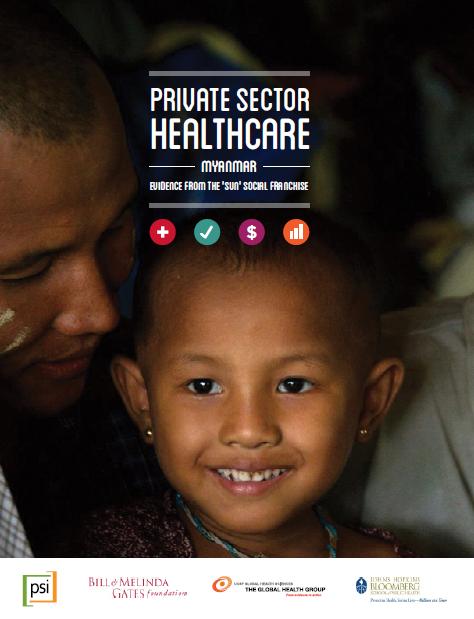
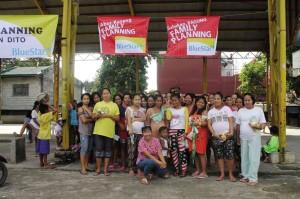
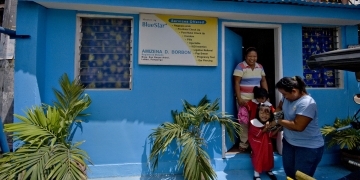
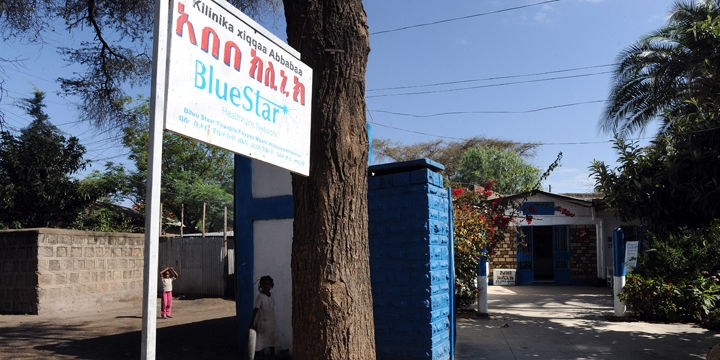
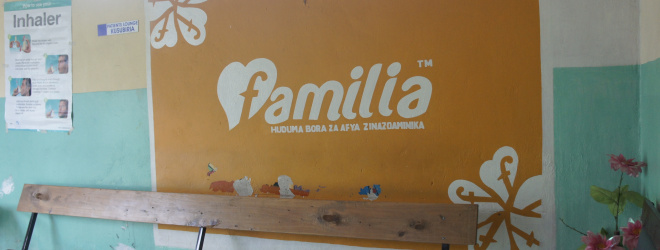
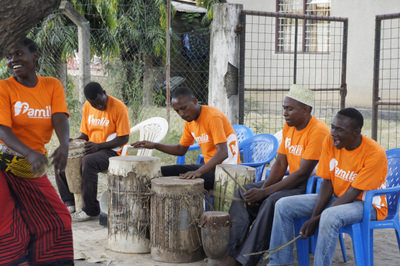
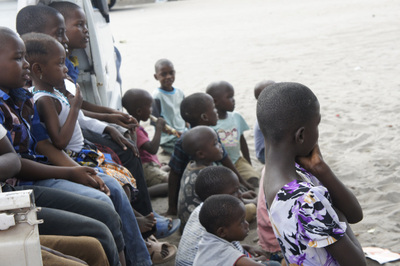
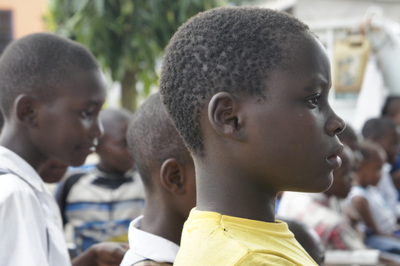
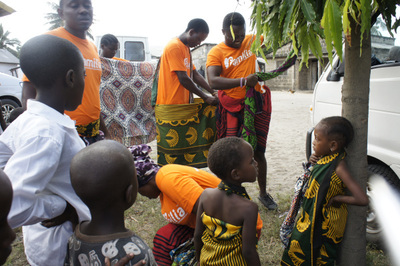
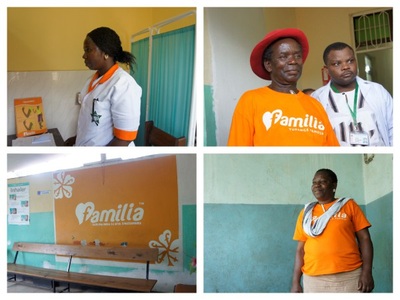
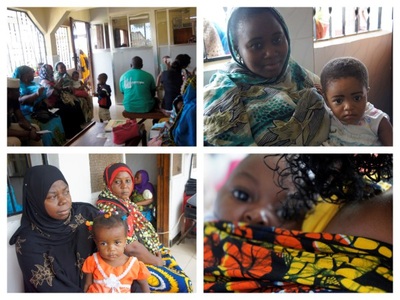
 RSS Feed
RSS Feed
